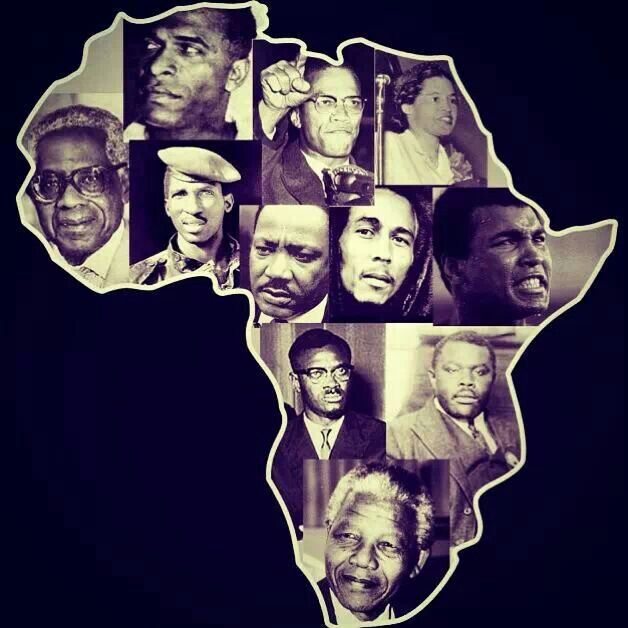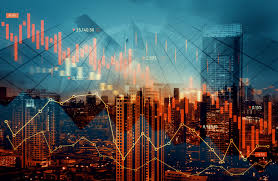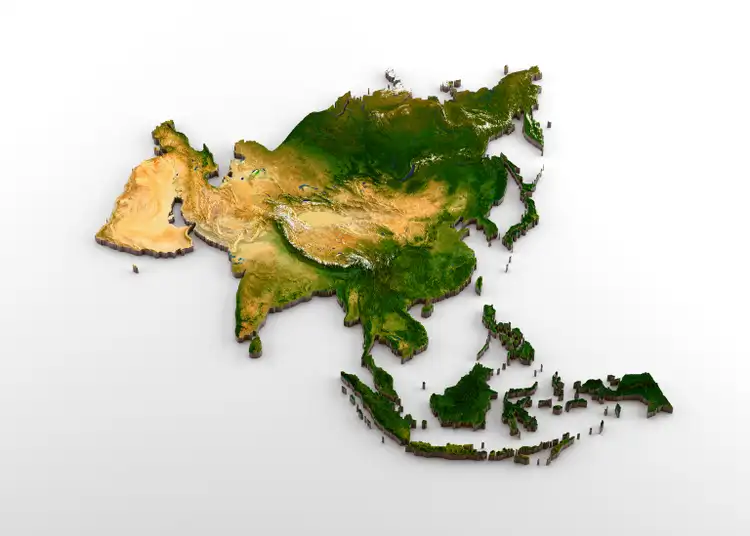The Inequality Machine: How Global Systems Perpetuate Wealth Divides

In an era of unprecedented global wealth, a stark and growing divide persists: the rich are getting richer, and the poor are becoming poorer.
SOURCE: Premium Times
This isn't merely a natural outcome of market forces. It's the result of entrenched systemic mechanisms and policy choices that inherently favor capital accumulation at the top while eroding opportunities at the bottom.
These often-invisible systems act as an "inequality machine," actively widening the gap, threatening social cohesion and long-term global stability.
Economic Mechanisms of Wealth Concentration
The rapid accumulation of wealth at the top is fueled by specific economic and financial mechanisms. A primary driver is regressive tax policies, where the tax burden is shifted from capital to labor.
SOURCE: Friday Times
Many countries have tax systems that favor income from investments, like capital gains and dividends, often taxing them at a lower rate than income from wages and salaries.
This allows those with significant assets to grow their wealth faster and more efficiently than those who rely on a paycheck.
Additionally, the financialization of the economy has played a significant role.
The increasing dominance of the financial sector over the real economy has created new avenues for generating wealth through complex instruments and transactions, benefiting those with access to capital and sophisticated financial tools.
Regulatory loopholes also enable the wealthy to shield their assets from taxation, with offshore accounts and complex trust funds becoming powerful tools for tax avoidance on a massive scale.
A report from Oxfam has consistently shown that a small number of billionaires now hold more wealth than the bottom half of the global population, a direct result of these systemic advantages.
Labor Market Dynamics and Stagnation
While the rich benefit from the gains of capital, the majority of the population faces wage stagnation and precarious employment. Global labor market dynamics, automation, and the rise of the gig economy have contributed to this trend.
SOURCE: Google
The outsourcing of manufacturing and service jobs to lower-cost regions has put downward pressure on wages in developed countries.
Automation and artificial intelligence are now replacing repetitive tasks, which disproportionately affects lower-skilled workers. This reduces their bargaining power and limits their ability to build wealth through a stable income.
The Gig economy, while offering flexibility, often comes with a lack of job security, benefits, and predictable income. Workers are classified as independent contractors, which means they don't receive health insurance, paid leave, or retirement benefits.
This erodes the traditional pathways to financial stability and makes it incredibly difficult for lower-income groups to save and invest for the future. As a result, many are caught in a cycle of short-term work with little chance of long-term economic mobility.
The Power of Intergenerational Wealth
Wealth inequality is not just about what people earn in their lifetime; it's also about what they inherit. Inheritance laws and intergenerational wealth transfers play a crucial role in entrenching disparities.
SOURCE: Google
A system where wealth begets more wealth is built on the foundation of inherited capital, which provides a significant head start. Studies have shown that a person's economic status is more likely to be determined by the wealth of their parents than their own hard work.
This creates a powerful feedback loop where the children of the wealthy inherit assets, businesses, and social networks that give them a competitive advantage from birth.
In many countries, inheritance taxes are low or have loopholes, allowing large fortunes to be passed down largely intact. This concentrates wealth across generations and solidifies a new form of aristocracy.
The economic philosopher Thomas Piketty has argued extensively that when the rate of return on capital exceeds the rate of economic growth, inherited wealth will always outpace earned income, inevitably leading to a more unequal society.
This mechanism ensures that the chasm between the wealthy and everyone else continues to widen.
Trapped in Cycles of Poverty
Unequal access to fundamental resources acts as a powerful trap, limiting opportunities for segments of the population. Access to quality education is a primary driver of social mobility, but in many places, it is stratified by income and location.
SOURCE: Google
Lower-income communities often have underfunded schools, fewer resources, and less-experienced teachers. This educational disparity limits their future earning potential and career opportunities.
The same is true for healthcare, where a lack of access to preventative care and quality treatment can lead to chronic health issues, forcing individuals to spend a significant portion of their income on medical expenses.
Unequal access to capital further exacerbates these cycles. Predatory lending practices, which target low-income individuals with high-interest loans, can push families into a debt spiral from which it's nearly impossible to escape.
The digital exclusion of communities that lack internet access and digital literacy prevents them from participating in the modern economy, from finding job opportunities online to accessing financial services and educational resources.
These systemic barriers ensure that upward mobility remains a distant dream for millions.
Societal and Political Consequences
The consequences of widening wealth inequality extend far beyond economics, impacting society and politics in profound ways. A lack of social mobility can lead to social frustration and a sense of injustice, eroding the belief that hard work can lead to success.
SOURCE: Google
This threatens the very fabric of social cohesion and can lead to increased crime and political instability.
The rise of populist movements and political polarization in many parts of the world is a direct response to the feeling that the economic system is rigged in favor of a powerful elite.
Furthermore, concentrated wealth can translate into concentrated political power. The wealthy can use their resources to influence elections, lobby for favorable policies, and shape public discourse, further entrenching the systems that benefit them.
This undermines democratic stability and can lead to a state where the needs of the many are sacrificed for the interests of the few. It erodes collective well-being by placing private interests above public good, whether it's in environmental protection, public health, or education funding.
Disrupting the Inequality Machine
Addressing this systemic crisis requires bold policy interventions and structural reforms. One of the most common proposals is to implement progressive tax policies, increasing the tax rate on wealth, inheritances, and high incomes to fund public goods and services.
Another key strategy is to strengthen labor rights and ensure fair wages, giving workers more power to bargain for better pay and benefits. This could include policies to protect gig economy workers and invest in training for jobs of the future.
Alternative economic models are also being proposed, such as a Universal Basic Income (UBI) or wealth taxes, to ensure a more equitable distribution of resources.
Efforts to reform inheritance laws, invest massively in public education and healthcare, and create equitable access to capital are also crucial. These measures are not just about redistributing wealth but about fundamentally re-engineering the system so that it works for everyone.
The goal is to dismantle the inequality machine and build a more inclusive, resilient, and stable global economy.
You may also like...
Why Do Africans Become More African After Leaving Africa?

Why do Africans abroad suddenly embrace their roots with pride? From Afrobeats in London to Yoruba weddings in New York,...
Boxing Icon's Son in Legal Turmoil: Julio Cesar Chavez Jr. Faces Cartel Allegations & Deportation Drama!

Mexican boxer Julio César Chávez Jr. has been deported from the U.S. to Mexico, where he was immediately jailed for alle...
Super Falcons Make History: Nigeria Crowned WAFCON Champions for 10th Time in Thrilling Win!
)
Nigeria's Super Falcons made history by clinching their 10th Women's Africa Cup of Nations title with a spectacular 3-2 ...
Paolo Sorrentino's 'La Grazia' Dazzles Venice, Earns Raves

Paolo Sorrentino's latest film, 'La Grazia,' captivated the Venice Film Festival, earning a four-minute standing ovation...
KPop Demon Hunters Ignites Oscar Buzz, Captivates Audiences

The animated film "KPop Demon Hunters" has emerged as a record-breaking global phenomenon, topping Netflix viewership ch...
Naira Marley Breaks Silence: Explosive Defense in Mohbad Case Rocks Nigeria!

Naira Marley has released a documentary sharing his side of the story regarding the tragic death of his former signee, M...
Fans Buzzing as Reading & Leeds Festival Teases Major Secret Headliners!

Anticipation is high for the 2025 Reading and Leeds Festivals, with widespread rumors of secret sets from bands like Wol...
Britpop Backlash: Oasis Reunion Fuels Fan Fury, Ticketmaster Under Fire!

Oasis is set to embark on a highly anticipated reunion tour with Andy Bell confirming his involvement, playing 41 dates ...



